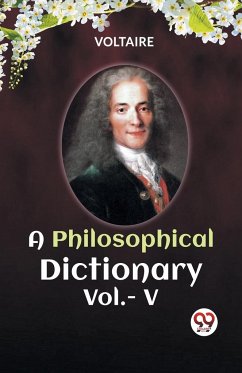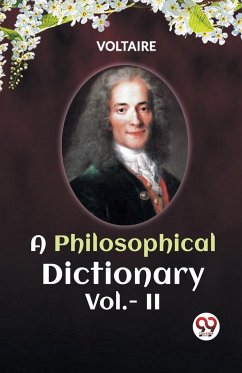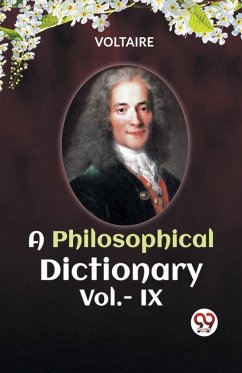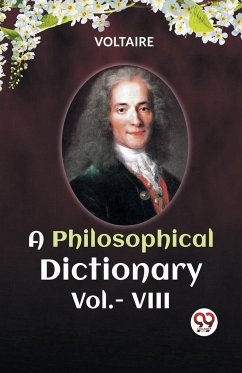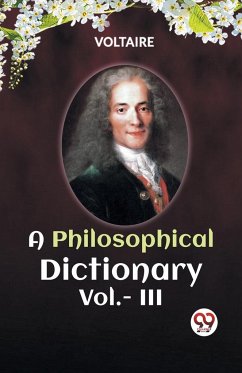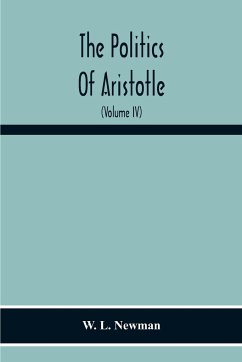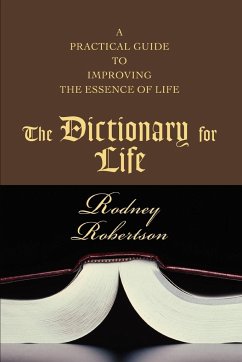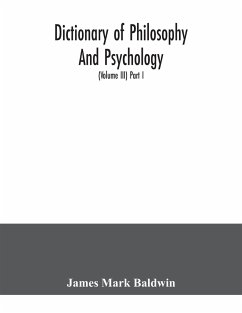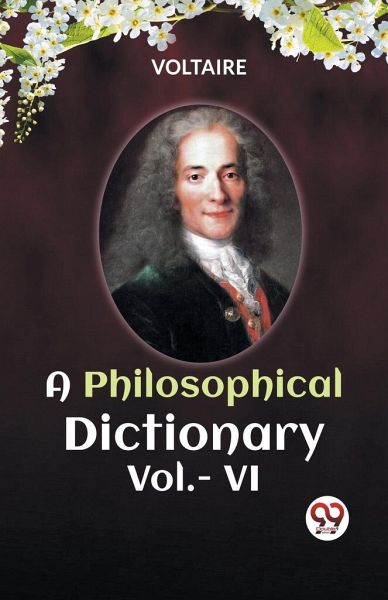
A PHILOSOPHICAL DICTIONARY Vol.- VI
Versandkostenfrei!
Versandfertig in 1-2 Wochen
15,99 €
inkl. MwSt.

PAYBACK Punkte
8 °P sammeln!
"A PHILOSOPHICAL DICTIONARY VOL. VI" is the maximum essential work of his time because it indicates how sharply he could chortle at and criticize the thoughts and establishments of his time. As a set of articles and entries, this philosophical dictionary gives you a full have a look at Voltaire's thoughts on a wide range of subjects, which include faith, government, science, and human nature. In the primary book, Voltaire uses his signature sarcastic fashion to interrupt down non-secular dogmas and traditional beliefs and call for purpose and tolerance. He talks about such things as theocracy,...
"A PHILOSOPHICAL DICTIONARY VOL. VI" is the maximum essential work of his time because it indicates how sharply he could chortle at and criticize the thoughts and establishments of his time. As a set of articles and entries, this philosophical dictionary gives you a full have a look at Voltaire's thoughts on a wide range of subjects, which include faith, government, science, and human nature. In the primary book, Voltaire uses his signature sarcastic fashion to interrupt down non-secular dogmas and traditional beliefs and call for purpose and tolerance. He talks about such things as theocracy, superstition, and religious hatred, and he helps a wiser and greater affordable way of coping with issues in society. The beliefs of the Enlightenment, like cause, man or woman freedom, and the look for knowledge, may be seen in Voltaire's writing. Voltaire's expertise is apparent at some stage in the dictionary, as he draws on a huge variety of sources, such as historical occasions, literature, and clinical reveals. There is a mixture of seriousness and sarcasm in his work, which makes complex thoughts reachable to a much wider audience. "A PHILOSOPHICAL DICTIONARY VOL. VI" is an instance of Voltaire's highbrow legacy. It demanding situations the status quo and fights for highbrow freedom and open research.





